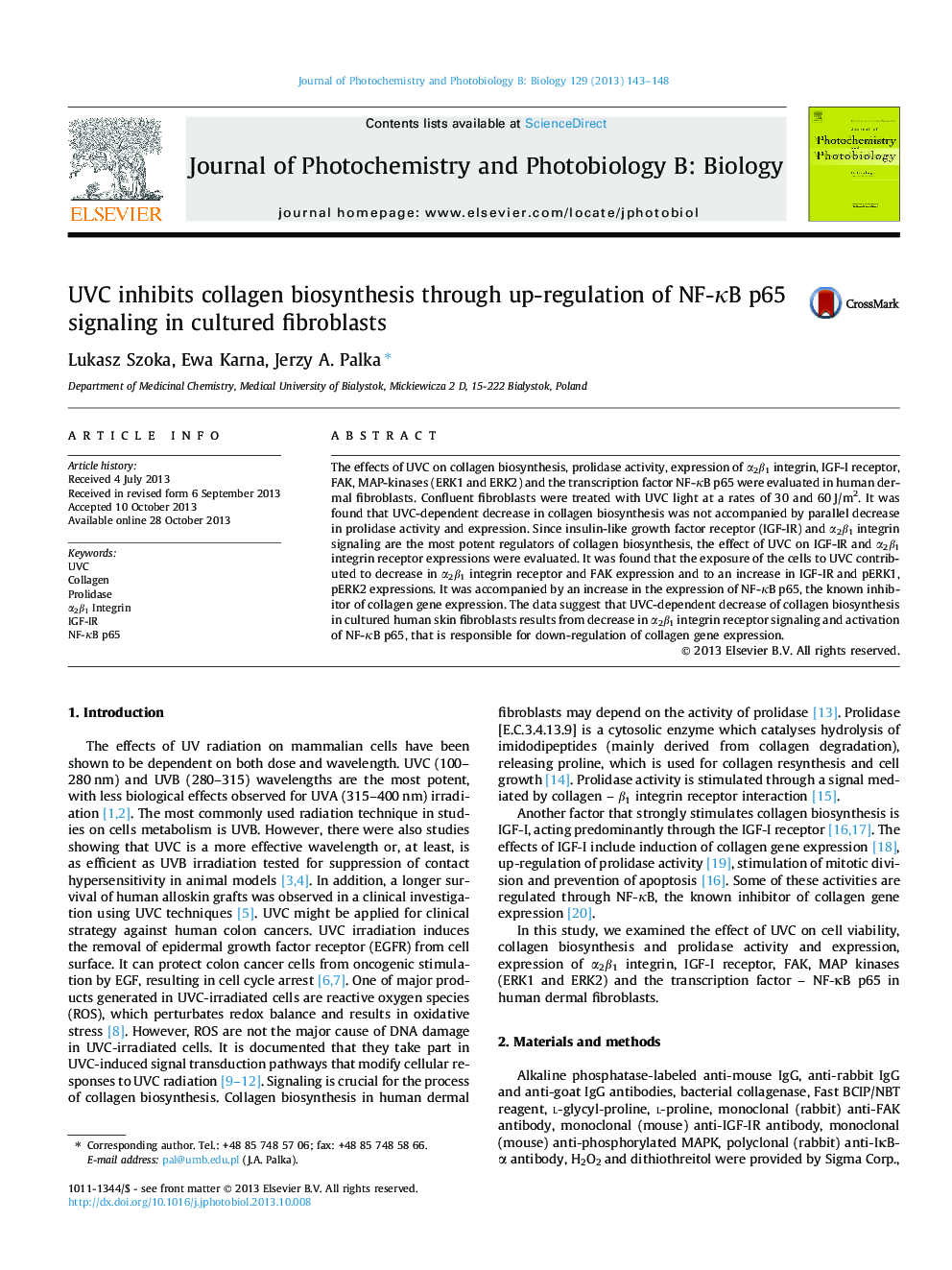| Article ID | Journal | Published Year | Pages | File Type |
|---|---|---|---|---|
| 30194 | Journal of Photochemistry and Photobiology B: Biology | 2013 | 6 Pages |
•UVC inhibits collagen biosynthesis through down-regulation of α2β1 integrin signaling.•UVC-dependent inhibition of collagen biosynthesis is independent on prolidase activity.•UVC up-regulate NF-κB p65 expression in fibroblasts.
The effects of UVC on collagen biosynthesis, prolidase activity, expression of α2β1 integrin, IGF-I receptor, FAK, MAP-kinases (ERK1 and ERK2) and the transcription factor NF-κB p65 were evaluated in human dermal fibroblasts. Confluent fibroblasts were treated with UVC light at a rates of 30 and 60 J/m2. It was found that UVC-dependent decrease in collagen biosynthesis was not accompanied by parallel decrease in prolidase activity and expression. Since insulin-like growth factor receptor (IGF-IR) and α2β1 integrin signaling are the most potent regulators of collagen biosynthesis, the effect of UVC on IGF-IR and α2β1 integrin receptor expressions were evaluated. It was found that the exposure of the cells to UVC contributed to decrease in α2β1 integrin receptor and FAK expression and to an increase in IGF-IR and pERK1, pERK2 expressions. It was accompanied by an increase in the expression of NF-κB p65, the known inhibitor of collagen gene expression. The data suggest that UVC-dependent decrease of collagen biosynthesis in cultured human skin fibroblasts results from decrease in α2β1 integrin receptor signaling and activation of NF-κB p65, that is responsible for down-regulation of collagen gene expression.
